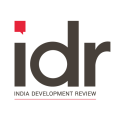Strategic philanthropy was born a generation ago to challenge the prevailing orthodoxies of philanthropy over the past century. Moving beyond traditional notions of giving back and charity, strategic philanthropy believes the way to create change is to decide on a goal that matters and then figure out what it will take to achieve it.
And strategic philanthropy’s norms are still gathering force—still promising to inspire and improve the good that philanthropy can do.
However, what is also clear is that strategic philanthropy is in danger of becoming its own orthodoxy—a set of conventions that deserve to be questioned and are now being questioned by a next generation of innovators around the globe.
Many roads to a larger good
Let us first understand the journey of philanthropy itself, before we discuss the dilemma faced by strategic philanthropy. Some of us are no doubt just starting out; others are already quite experienced, and have much learning to share; some have built a great fortune and feel a responsibility to give back; and some are already part of a family tradition of giving.
Despite these differences, we also share many important things, not least the great privilege we enjoy in a world sorely in need of change and transformation. We are also united in our understanding of some of the great truths about philanthropy. While it can be a source of great joy, doing it well—let alone excellently—is quite hard.
Philanthropy is about making choices, and there are many right answers. It’s easy to be overwhelmed. And it’s easy to feel that no matter what you do, no matter how thoughtful you are, your efforts are small compared to the size of the problems in the world, for philanthropy can be a confounding mixture of power and powerlessness.
Philanthropy is about making choices, and there are many right answers.Nevertheless, in philanthropy’s long history, leaders regularly come along and ask: Can’t we do better?
That’s what has been happening in recent years, as our generation asks the following kinds of questions: Can’t philanthropy be about making measurable progress toward clear definitions of success?
Can more rigour and discipline be brought to decision-making, basing strategies on evidence, not just wishful thinking? Can philanthropy, in other words, be more like business and insist on a social return on investment?
These questions have famously unleashed a great deal of energy and innovation—and no small amount of hype. I have had a front row seat at this ‘strategic philanthropy’ drama, working with many of this generation’s best leaders in major foundations, and in the newer domains that go by names like venture philanthropy, social entrepreneurship and impact investing.
While the pace of experimentation and the scale of the changes taking place has been impressive, it’s fair to ask: How is it going? Is it working?
On one level, it will be a long time before we fully know the results. There is some good news already: improving maternal and child health trend lines in many parts of the world, for instance. In other domains, such as climate change, the problems are getting worse much faster than our attempts to solve them.
I don’t think we have to wait, however, to ask how it’s going when it comes to the practice of philanthropy itself.
The limitations of strategic philanthropy
While the increase in rigour is commendable, the mindset of strategic philanthropy has significant limitations. The disciplines and cultures of business and management are much better at creating wealth than at creating the large transformative changes that philanthropy seeks to catalyse.
Let us look at two aspects of strategy that I believe are getting in the way of greater success: decision making and strategy making.Climate change strategic philathropy
Decision making: Who decides, and based on what knowledge?
At the heart of strategic philanthropy is an assumption that making a strategy is a rational process, controlled inside an organisation or by a donor, to craft a unique philanthropic contribution.
This approach directly challenges older, more relational styles of giving, when funders ‘respond’ to those who ask, and attempt to fund great strategies rather than assuming they should figure them out on their own.
Click here to read the full article on the India Development Review website.






Comments (0)